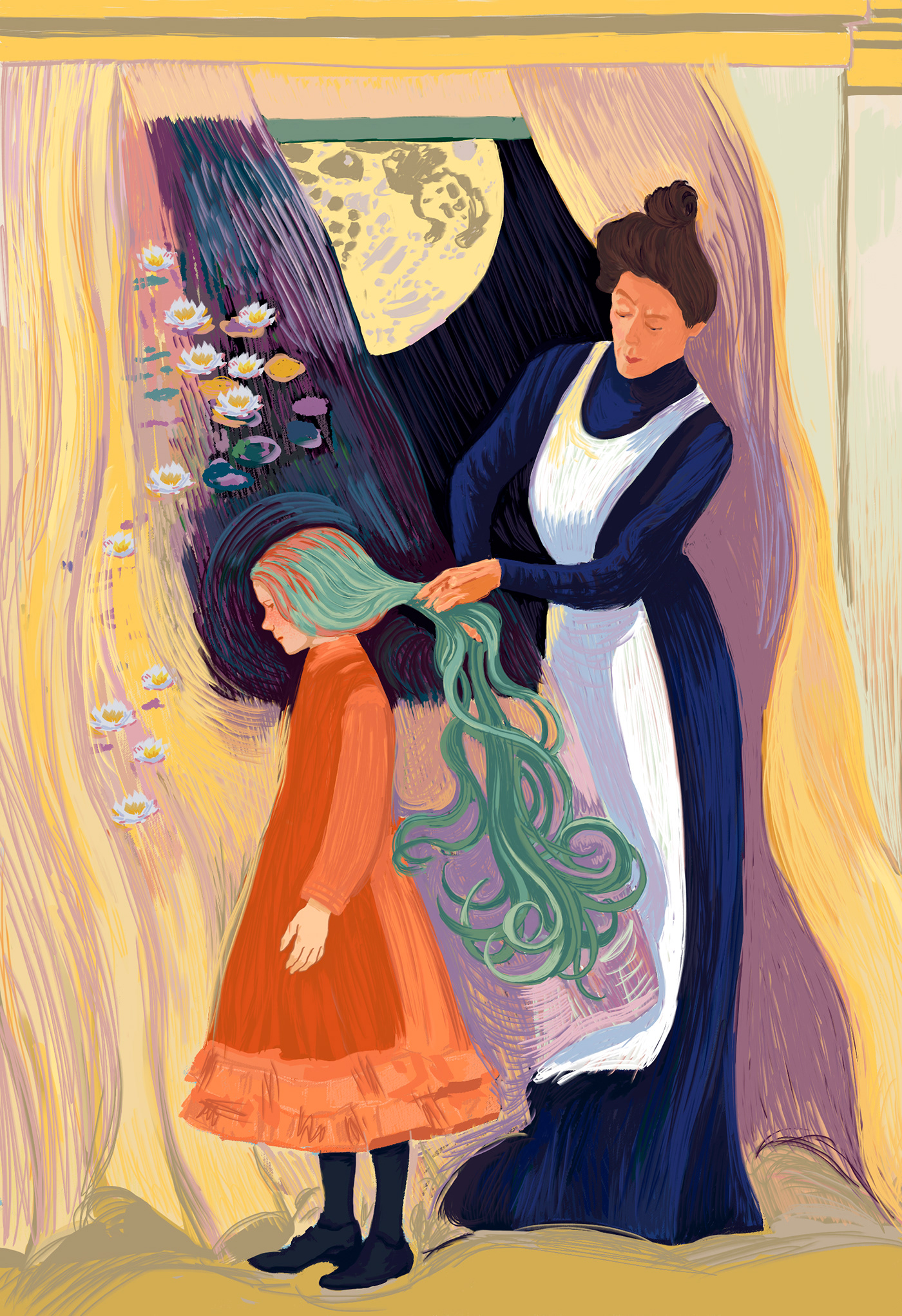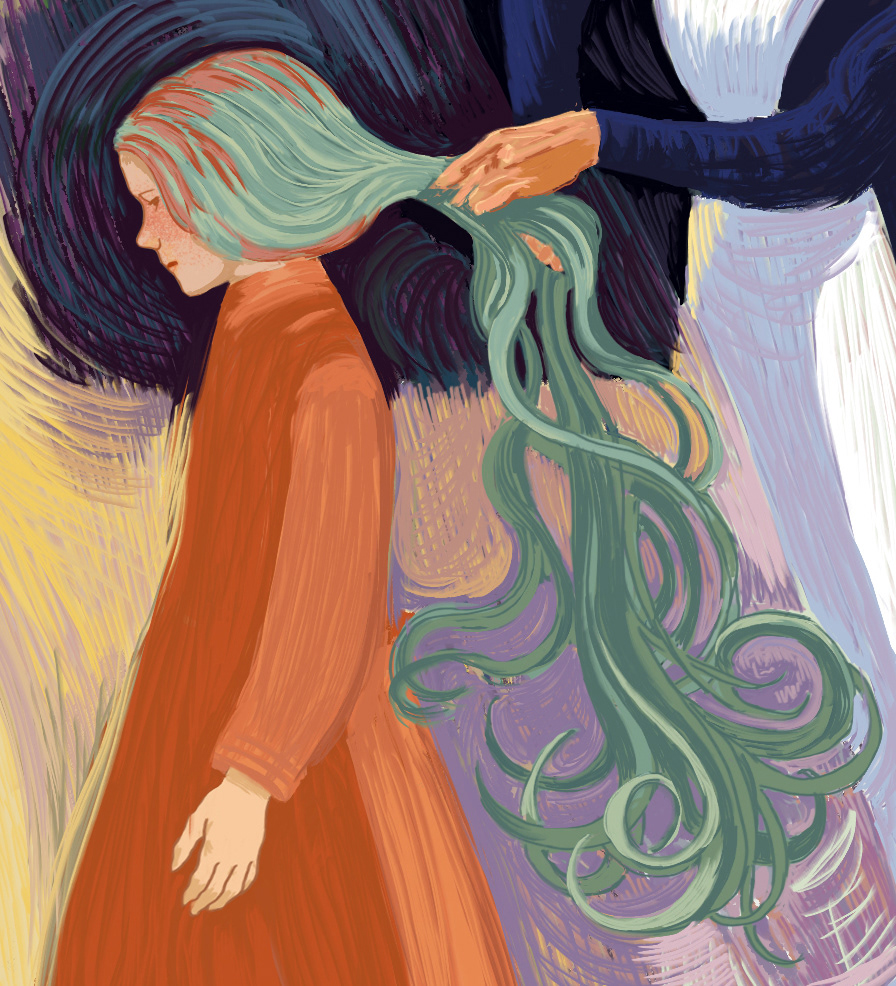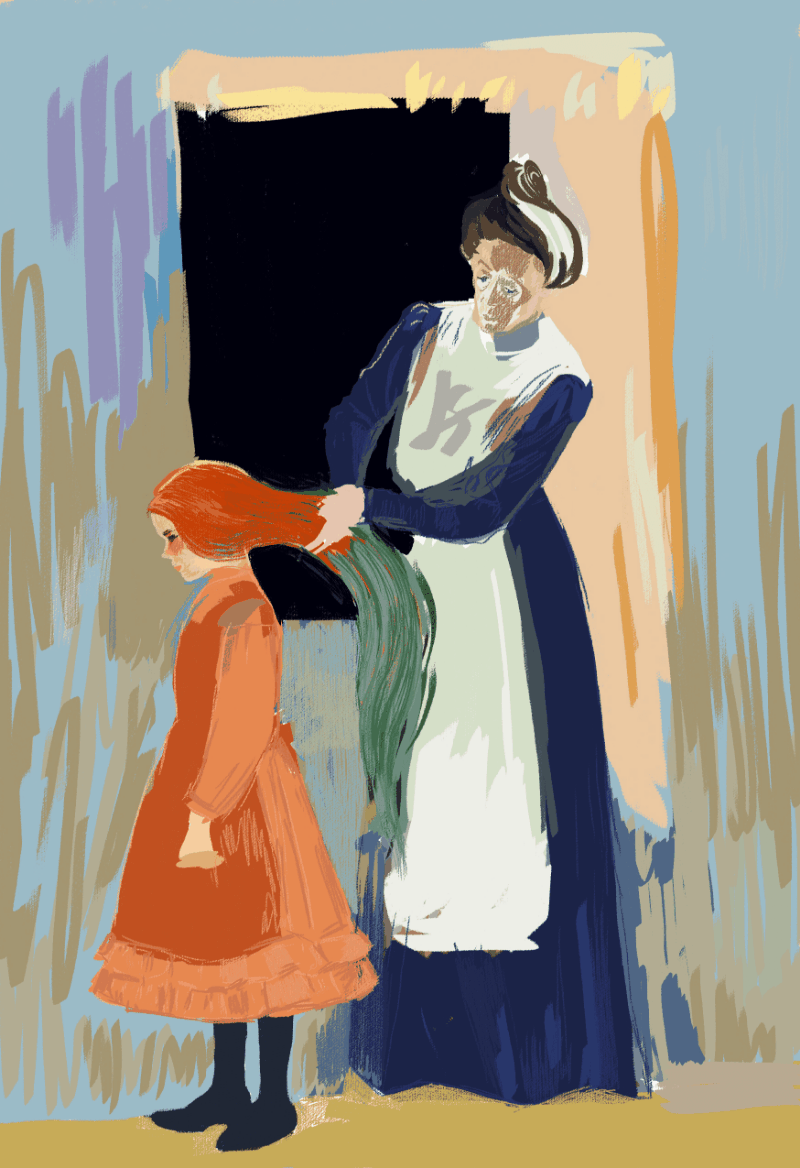“The good stars met in your horoscope, / Made you of spirit and fire and dew.”—Browning
Without her feminism wouldn’t have made sense. Every character, every setting, every scene, is by turns uproariously hilarious, deeply touching, inspirational, and memorable. Anne Shirley is the spunkiest and, in my opinion, best heroine of all time. – Billy
Pretty much the gold standard for historical fiction with a dreamy-eyed, book-loving firebrand of a protagonist whose imagination gets her up to no good. You can’t throw a rock into a library without hitting a host of Anne wannabes. And it’s also possible that you can’t throw a rock into a children’s literature conference without hitting a passel of ladies who ARE Anne Shirley. It’s not just a book, it’s a lifestyle. Plus, I have to respect any character with a compulsive drive to emphasize the silent e at the end of her name. (Did I mention my name was Brooke-with-an-e?)– Brooke Shirts (Casa Camisas)
If my childhood self was Ramona, Anne is who I wanted to be. If at some point I don’t get to put on a dress with puffed sleeves and run down the White Way of Delight to the Lake of Shinning Waters, my life will be a pale shadow of what it should be. After reading this for the first time at the age of 12 or 13 I re-read and re-read the passage where Gilbert finds Anne stranded under the bridge. So much romance for my little twitterpated heart! Although the rest of the series can’t compare to the first I have read them all through several times. I am enchanted by the Victorian delicacy of the language, particularly when Anne is pregnant. What “secret smiles” and “small hopes for the future” can covey in reference to biology. – DaNae (The Librariest)
After becoming acquainted with Anne I immediately began to divide the world into ‘kindreds’ and ‘non-kindreds’ and started looking for my Gilbert Blythe. (Forget Mr. Darcy! Give me Gilbert anyday.) – Jennifer Sauls
Why is Anne so eternally awesome? Is it because we wish we could have a friend just like Anne or that we wish we could BE her? I spent most of my childhood looking for "my Diana Barry" and when I finally found her, it turned out I was HER Diana Barry instead, because she was obviously the Anne of the two of us. So having a friend like Anne is the more awesome option, I think. You avoid having to face most of the embarrassing traumas head-on that way. – A.M. Weir (Amy’s Library of ROCK)
I’m Canadian. It’s kind of my duty to love this. I was obsessed as a kid. – Stacy Dillon, Lower School Librarian, LREI – Little Red School House & Elisabeth Irwin High School
CHAPTER XXVII. Vanity and Vexation of Spirit

“Look at my hair, Marilla,” she whispered.
Accordingly, Marilla lifted her candle and looked scrutinizingly at Anne’s hair, flowing in heavy masses down her back. It certainly had a very strange appearance.
“Anne Shirley, what have you done to your hair? Why, it’s green!”
Green it might be called, if it were any earthly color—a queer, dull, bronzy green, with streaks here and there of the original red to heighten the ghastly effect. Never in all her life had Marilla seen anything so grotesque as Anne’s hair at that moment.
“Yes, it’s green,” moaned Anne. “I thought nothing could be as bad as red hair. But now I know it’s ten times worse to have green hair. Oh, Marilla, you little know how utterly wretched I am.”
“I little know how you got into this fix, but I mean to find out,” said Marilla. “Come right down to the kitchen—it’s too cold up here—and tell me just what you’ve done. I’ve been expecting something queer for some time. You haven’t got into any scrape for over two months, and I was sure another one was due. Now, then, what did you do to your hair?”
“I dyed it.”
“Dyed it! Dyed your hair! Anne Shirley, didn’t you know it was a wicked thing to do?”
“Yes, I knew it was a little wicked,” admitted Anne. “But I thought it was worth while to be a little wicked to get rid of red hair. I counted the cost, Marilla. Besides, I meant to be extra good in other ways to make up for it.”

“Well,” said Marilla sarcastically, “if I’d decided it was worth while to dye my hair I’d have dyed it a decent color at least. I wouldn’t have dyed it green.”
“But I didn’t mean to dye it green, Marilla,” protested Anne dejectedly. “If I was wicked I meant to be wicked to some purpose. He said it would turn my hair a beautiful raven black—he positively assured me that it would. How could I doubt his word, Marilla? I know what it feels like to have your word doubted. And Mrs. Allan says we should never suspect anyone of not telling us the truth unless we have proof that they’re not. I have proof now—green hair is proof enough for anybody. But I hadn’t then and I believed every word he said implicitly.”
“Who said? Who are you talking about?”
“The peddler that was here this afternoon. I bought the dye from him.”
“Anne Shirley, how often have I told you never to let one of those Italians in the house! I don’t believe in encouraging them to come around at all.”

“Oh, I didn’t let him in the house. I remembered what you told me, and I went out, carefully shut the door, and looked at his things on the step. Besides, he wasn’t an Italian—he was a German Jew. He had a big box full of very interesting things and he told me he was working hard to make enough money to bring his wife and children out from Germany. He spoke so feelingly about them that it touched my heart. I wanted to buy something from him to help him in such a worthy object. Then all at once I saw the bottle of hair dye. The peddler said it was warranted to dye any hair a beautiful raven black and wouldn’t wash off. In a trice I saw myself with beautiful raven-black hair and the temptation was irresistible. But the price of the bottle was seventy-five cents and I had only fifty cents left out of my chicken money. I think the peddler had a very kind heart, for he said that, seeing it was me, he’d sell it for fifty cents and that was just giving it away. So I bought it, and as soon as he had gone I came up here and applied it with an old hairbrush as the directions said. I used up the whole bottle, and oh, Marilla, when I saw the dreadful color it turned my hair I repented of being wicked, I can tell you. And I’ve been repenting ever since.”
“Well, I hope you’ll repent to good purpose,” said Marilla severely, “and that you’ve got your eyes opened to where your vanity has led you, Anne. Goodness knows what’s to be done. I suppose the first thing is to give your hair a good washing and see if that will do any good.”
Accordingly, Anne washed her hair, scrubbing it vigorously with soap and water, but for all the difference it made she might as well have been scouring its original red. The peddler had certainly spoken the truth when he declared that the dye wouldn’t wash off, however his veracity might be impeached in other respects.
“Oh, Marilla, what shall I do?” questioned Anne in tears. “I can never live this down. People have pretty well forgotten my other mistakes—the liniment cake and setting Diana drunk and flying into a temper with Mrs. Lynde. But they’ll never forget this. They will think I am not respectable. Oh, Marilla, ‘what a tangled web we weave when first we practice to deceive.’ That is poetry, but it is true. And oh, how Josie Pye will laugh! Marilla, I cannot face Josie Pye. I am the unhappiest girl in Prince Edward Island.”



